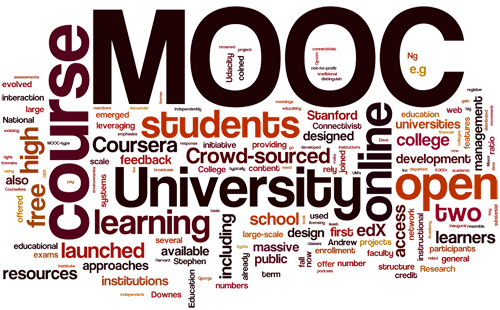As global cooperation penetrates into every aspect of the society, the area of education attracts more and more attention, and the claim for innovation and change in higher education is relatively high. In the panel session of Beijing Forum 2013, scholars try to envision trends of the higher education in this brand new era.
Massive Open Online Courses (MOOC): Chances and Challenges
Professor Wang Minhong from the Faculty of Education of the University of Hong Kong points out that in the age of globalization, education is no longer an individual behavior but group behavior, which inevitably relates to organizations and various communities. The extension of education makes autonomous and lifelong learning essential for everyone in modern society.
Many online platforms such as Coursera and edX provide a much wider range of courses for students to choose from compared with traditional classes. With the rapid advancement of technology, learning is not confined to classrooms and students can learn in a freer way. Besides, students can have more communication with teachers with the help of online forum. Anyone, rich or poor, old or young, man or woman, with a strong desire to study can always find materials worthwhile in the online open courses. In this sense, the massive open online courses are pioneering in the field of education.
Admittedly, many problems arise when MOOCs spring up in the world. According to some related studies, only a small number of students complete the courses compared with the initial number of people who have registered for the courses. The unique pattern of online courses requires students to have the ability to carry on their study voluntarily and independently. Students have to devote plenty of time to doing the required readings and finishing assignments, which is not easy for some people with a tight schedule. In addition, many of the open courses cannot provide authentic certificates for qualified students, and this defect discourages some people from working hard in a specific course.
Professor Wang Minhong adds that pioneers in the online courses are trying to overcome these problems and making online open courses stable programs rather than fleeting passion. In the University of Hong Kong, an online open course of programming language is admitted as the regular course, and anyone who finishes the open course can get the corresponding credit. This kind of action is a nice gesture guaranteeing the official acknowledgement of the credibility of open courses.

Global Engagement in Higher Education
Dr. Molly N.N. Lee is the Coordinator of the Asia-Pacific Program of Educational Program for Development (APEID) and Program Specialist in Higher Education at UNESCO Asia and the Pacific Regional Bureau for Education in Bangkok. As the Coordinator of APEID, she runs programs on higher education, technical and vocational education, education for sustainable development and ICT in education.
According to Dr. Molly N.N. Lee, global engagement in higher education basically has two sorts of meanings. First, good ideas of education can be transported globally and freely. For instance, some international universities now have branch campuses in China. Students of the University of Nottingham Ningbo China can enjoy international education in their homeland. When they graduate, they are recognized as qualified students of the University of Nottingham. This pattern is gaining popularity among Chinese students and parents. Secondly, a more reasonable distribution of education resources should also be emphasized. Different from other nations, the private education in China lacks adequate support and is exemplified by the so-called “Minban Univeristy”, many of which offer students with poor and unqualified education. The long-run negligence of private education and the chaos in practice make “Minban Universities” hinder the development of higher education in China.
Dr. Molly N.N. Lee also refers to the possibility of corporation between universities and communities. Community is the basic unit of society, and it shows many advantages in education over universities. Education embedded in the system of community is beneficial to a greater number of people. Knowledge is popularized at lowest cost in this way. Communities present universities with a large number of audiences while universities contribute to the communities by proffering the up-to-date information and mature experiences. The active participation of universities in the development of communities has become the leading direction in the future.
Written by He Sulan
Updated by June 5,2014



